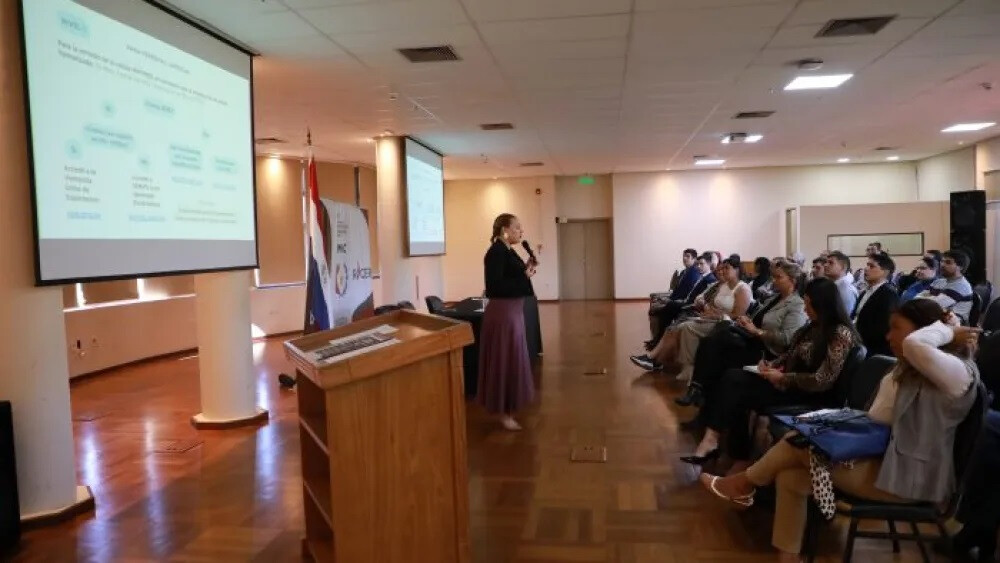
ASUNCIÓN, PARAGUAY – More than half of Micro, Small, and Medium-sized Enterprises (Mipymes) in Paraguay have received financial education. According to the Vice Ministry of SMEs, approximately 53.5% of SMEs have accessed some form of financial training. This is a positive sign, indicating a strong interest in capacity building within the SME sector. However, it also casts a shadow on the low levels of formalization and financial inclusion. The high proportion of the informal economy is identified as a major factor hindering the sustainable growth of SMEs by increasing their dependence on informal finance.
Lack of Financial Literacy and Barriers to Formalization
A survey conducted by the Ministry of Industry and Commerce (MIC) involving 329 SMEs clearly illustrates the reality faced by Paraguayan SMEs. The study revealed a persistent tendency among many entrepreneurs to confuse consumer financial products with commercial ones, leading them to use inappropriate tools for their businesses. This further highlights the need for financial education.
Furthermore, cash flow management problems (36%) and limited knowledge of financial products (35%) were identified as major difficulties. Particularly noteworthy is that 94% of SMEs reported low accessibility to guarantee funds, and 59% were unaware of their existence. This unequivocally demonstrates the significant challenges SMEs face in securing funding.
According to the survey results, 61% of SMEs showed a moderate level of confidence when making financial decisions. This suggests ample room for improving financial knowledge through education.
Low Formalization Rate Feeds Informal Lending
Data from the third edition of the SME Formalization and Employment Report indicates that only 12.09% of registered SMEs in Paraguay have employees registered with IPS (Social Security Institute). Moreover, only 9.58% of enterprises in this category met all registration requirements for RUC (Taxpayer Identification Number), IPS, and MTESS (Ministry of Labor, Employment, and Social Security). This means that the majority of SMEs remain in the informal economy.
As of the end of the 2023 fiscal year, a total of 450,167 economic units were registered in the SME database, with an overwhelming 88.06% (396,407 units) being micro-enterprises. This shows that the backbone of Paraguay's economy is small businesses, but also suggests their vulnerability.
According to data from the National Institute of Statistics (INE/DNIT), there are a total of 705,521 unregistered SMEs in Paraguay, with 65% belonging to the informal sector. Among SMEs with an RUC, 366,978 exist, with 88% being micro-enterprises, 10% small enterprises, and 2% medium-sized enterprises. These figures confirm that many SMEs still operate outside the formal system.
Data managed by the Vice Ministry of SMEs reveals that 60% of legally operating SME entrepreneurs are unable to obtain credit from the formal financial system and are forced to rely on usury. This, coupled with the fact that only just over half of SMEs (53%) have an active bank account, highlights the serious problem of their exclusion from the formal financial system. Not having or not being able to use a bank account means significantly lower access to financial products themselves.
The latest data from the Formalization Report shows that SMEs registered with the National SME Registry (Renamipymes) have created 157,423 formal jobs in Paraguay. While this demonstrates the positive impact of formalization on job creation, it also suggests that many jobs remain precarious given the overwhelming proportion of the informal sector.
Challenges and Policy Recommendations
The low financial inclusion and high proportion of the informal economy in Paraguay's SME sector pose significant obstacles to national economic development. Addressing these issues requires a multi-pronged approach.
First, strengthening financial education and consulting is essential. Beyond simply informing about types of financial products, customized financial education programs tailored to the characteristics and growth stages of SMEs need to be developed. Education that enhances practical management capabilities, such as cash flow management, understanding financial statements, and choosing appropriate financial products, is necessary. Additionally, promotion of SME support schemes like guarantee funds should be strengthened to reduce lost opportunities due to lack of information.
Second, expanding access to the formal financial system is urgent. Banks and other financial institutions should develop flexible loan products that consider the specific characteristics of SMEs and introduce alternative credit scoring models for SMEs with insufficient collateral or credit history. Furthermore, digital financial services should be expanded to build infrastructure that allows SMEs easy and convenient access to financial services.
Third, incentives for promoting the formalization of the informal economy are crucial. Providing tangible benefits that SMEs can gain through formalization, such as tax reductions, simplified registration procedures, and linkage to social security benefits, should encourage voluntary formalization. The government should focus on reducing the burden on businesses during the formalization process and simplifying administrative procedures to lower entry barriers.
Fourth, the government's active support policies for SMEs must continue. Existing SME support programs should be expanded, and support for micro-enterprises and startups, in particular, should be strengthened to help them integrate into the formal economic system from the initial stages. This will contribute to job creation and national economic growth in the long run.
Despite high enthusiasm for education, Paraguayan SMEs face a dual challenge of a lack of financial literacy and limited access to the formal system. Close cooperation between the government and the private sector is crucial to resolve these issues and fully unleash the potential of SMEs. This will enable SMEs, the core engine of Paraguay's economy, to achieve healthier and more sustainable growth.
[Copyright (c) Global Economic Times. All Rights Reserved.]



























